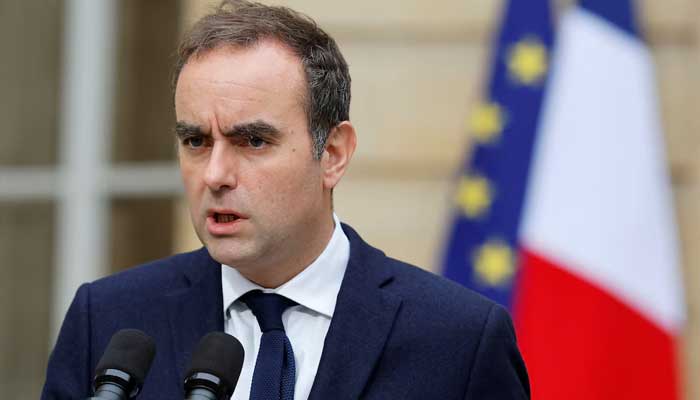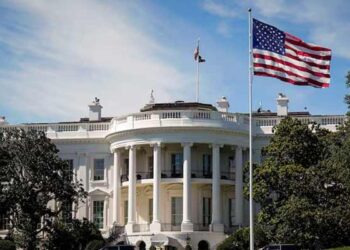Select Language:
French President Emmanuel Macron has reappointed Sebastien Lecornu as Prime Minister on Friday, just days after Lecornu’s resignation from the position. This move has sparked outrage among Macron’s most vocal political opponents, who have vowed to oppose the formation of the new government. At 47 years old, Macron is pinning his hopes on Lecornu to secure enough support in a deeply divided parliament to pass the 2026 budget. Confronted with France’s most severe political crisis in decades, many of Macron’s rivals are demanding either new parliamentary elections or Macron’s resignation.
Reactions from the far-left and far-right to Lecornu’s appointment have been harsh, indicating that his second term as PM might be just as challenging as his brief first stint, which lasted only 27 days before he resigned. Jordan Bardella, head of the National Rally, labeled the new government as “a bad joke, a democratic disgrace, and a humiliation for the French people,” criticizing Macron’s increasing isolation and out-of-touch attitude at the Elysee Palace.
Lecornu’s immediate focus is to present a budget to parliament by the upcoming Monday. He expressed on X (formerly Twitter) that he accepts the duty to deliver a budget for 2026 and address the everyday issues faced by citizens, emphasizing the need to end the political instability that frustrates the French populace and damages France’s reputation. He also stated that members of his government would need to relinquish personal ambitions about succeeding Macron in 2027, as the current political landscape has created instability within France’s fragile minority government and fractious legislative environment. Lecornu pledged his cabinet would embody renewal and diversity.
Macron’s inner circle indicated Lecornu has been given “carte blanche,” suggesting Macron is granting substantial freedom to negotiate his cabinet and budget. Support from both the Socialists and the conservative Republicans will be crucial for Lecornu’s survival, although no immediate response has come from their leaderships.
The key task for Lecornu is to deliver a concrete budget plan by the end of Monday. He stated that he takes this responsibility out of duty and hopes to address France’s ongoing political crisis, which has heightened instability and impacted the national image.
The ongoing budget negotiations are complicated by the left’s demands to overturn Macron’s 2023 pension reforms, which raised the retirement age, and to impose heavier taxes on the wealthy. These demands are difficult for Macron to reconcile with conservative support needed for budget approval. Macron proposed delaying the pension age increase to 64 until 2028, a concession criticized by Green leader Marine Tondelier as inadequate.
France’s budget deficit is projected to reach 5.4% this year, exceeding EU limits, with Lecornu estimating a deficit between 4.7% and 5% for 2026. Central bank governor François Villeroy de Galhau warned that the persistent political uncertainty would cost the economy about 0.2 percentage points of GDP, with overall economic conditions remaining broadly stable despite declining business confidence. The instability largely stems from Macron’s decision last year to hold a legislative election, which resulted in a hung parliament divided among three ideologically opposed blocs—a situation complicating efforts to implement fiscal reforms.
The fate of pension reform remains a significant issue, with the left pushing to reverse Macron’s changes and increase taxes on the wealthy, while conservatives support the reforms. Macron has offered a compromise to delay the pension age increase to 64 by a year, aiming for implementation by 2028, but opposition parties, including Green leaders, have deemed this insufficient.
France’s deficit is forecasted to hit nearly 5.4%, double the EU limit, with Lecornu accounting for a potential deficit of 4.7% to 5% next year if urgent legislative measures are not passed.







